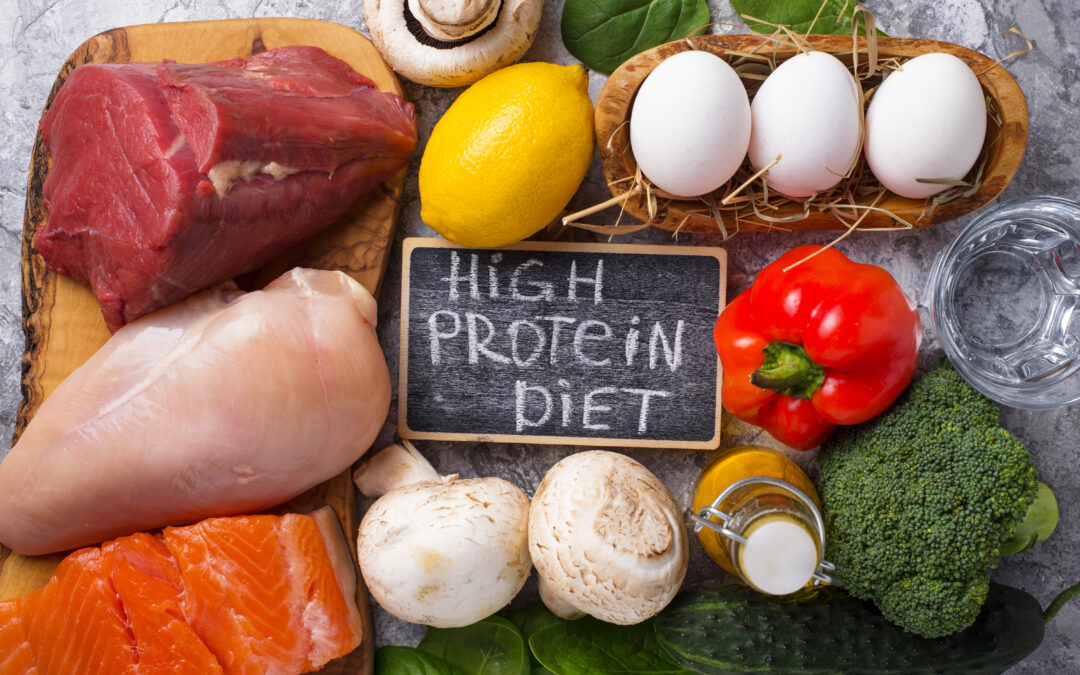Bombarded
Let’s face it. We’re bombarded by diet culture. We’re overwhelmed by advertisements, images, and wild claims that doing this thing or that diet or exercising obsessively will allow us to get to our ideal weight -the one that’s just perfect for us. So, we try the next best thing. It may work for a short time or a slightly longer time, but maintaining a healthy weight through a sustainable diet (and exercise) is the key to changes that last; those that will benefit you for a lifetime. The million-dollar question is: what’s the right diet? Recommendations change frequently, making it important to ensure the eating plan you adopt is backed by scientific and medical research.
Proteins, Carbs, and Fats
There are three macronutrients required to make the human body work: proteins, carbs, and fats. We’ve all heard the admonishments against too many carbs and too many fats, but both are necessary for our brains and bodies to function. Both are sources of energy. Protein requires a longer digestive process for our bodies to absorb. This less efficient absorption process means that it keeps us full longer, making a high protein diet very beneficial if we’re trying to lose or maintain our weight.
What Protein Does For Our Bodies
In our bodies, protein is responsible for innumerable functions. Even if we’re not concerned with weight loss, we need protein for:
- Development of muscle mass
- Bone strength
- Eye health
- Maintaining a strong immune system
- Many hormonal and enzymatic responses
- Digestion
- Health of tissues and cell regrowth
- Transporting nutrients
- Providing energy on which the body runs
Clearly, we need protein to survive and maintain good health.
The benefits of a high protein diet also include losing weight and maintaining a healthy weight. High protein diets have been shown to:
- Keep you feeling full longer
- Reduce food cravings
- Reduce late night snacking
- Burn fat quicker
- Increase your metabolism
- Maintain weight loss
Higher protein diets provide other benefits, too, including benefits to blood pressure, creating quicker healing of injuries, and supporting greater fitness levels as we age.
Incorporating More Protein Into Our Diets
Recommendations for protein intake are based on your height and gender. It’s a good idea to check with your medical provider to determine what your protein intake should be. To eat a high protein diet, you can incorporate 20 to 30 grams more protein than recommended into your daily food intake, but it’s best to confirm that with your medical provider, too.
Good sources of protein are:
- Eggs
- Red meat
- Chicken
- Fish and shellfish
- Greek yogurt
- Black and pinto beans
- Lentils
- Cottage cheese
- Tofu
- Edamame
- Spinach
- Nuts
It’s possible to eat a high protein diet whether you’re a vegan, vegetarian, or omnivore, and it’s highly beneficial to your health.
HEBE Aesthetics and Vitality
HEBE Aesthetics and Vitality in the Atlanta, GA area recommends a high protein diet as part of maintaining overall good health, and as a way to manage and maintain a healthy weight. Our weight loss programs include a myriad of weight management tools. Contact us today so we can create an individualized weight management program that considers your lifestyle, current health goals, and current health challenges. We want to improve your health so you can enjoy the best quality of life possible.
Disclaimer: The information contained here was not written by a medical doctor and is intended for informational purposes only. This is not a substitute for medical advice.


